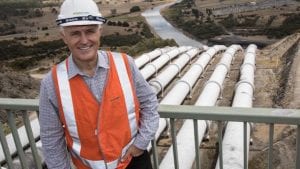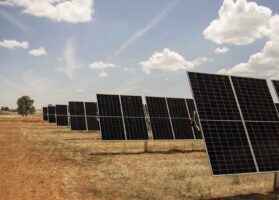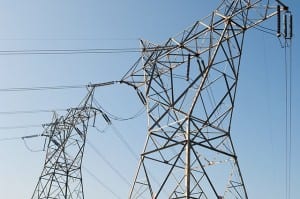Winding back the Renewable Energy Target would be a “kick in the guts” to Australia’s first community-owned wind farm, and would kill off investment in the potentially lucrative community renewables sector, one of the project’s founding directors has warned.
The comments, by Hepburn Wind chair Simon Holmes à Court, follow Tuesday’s visit to the award-winning two-turbine facility by members of the Abbott government-appointed RET Review panel.
“We already feel betrayed by the change of stance on renewables in Canberra,” Holmes à Court told RenewEconomy in an interview. “After yesterday’s visit,” he added, “we feel no less worried that the Review is setting up the government to break its long-held commitment to renewable energy.”
“If they don’t recommend cutting (the target) back,” he adds, “I’ll eat my hat.”
Indeed, the Abbott government-appointed RET Review panel, which is headed up by former Caltex chair and self-described climate sceptic Dick Warburton, is widely expected to recommend Australia’s 20 per cent by 2020 renewable energy target be watered down, if not kill it off entirely – as recommended by the IPA last year as item 6 on its much publicised, 75-item policy wish list.
If the recommendation is to scrap the target altogether, Holmes à Court says Hepburn Wind would face financial ruin.
“Our investment will be written off and our investors will lose their dough,” he said on Wednesday. And beyond this loss, he says, lies an even bigger loss of opportunity for Australian communities and small business.
Holmes à Court’s comments are timely, with over 300 delegates set to attend a national community energy congress in Canberra next week, to build on the dreams of over 70 community groups – inspired by the Hepburn model, which generates enough to power more than the number of homes in Daylesford – to meet their local energy needs.
But just as Abbott tells North American audiences that Australia is open for business, his government appears bent on closing this particular door.
“As a community, we thought we were doing the right thing,” Holmes à Court said. “Any change now would be a kick in the guts – financially and to morale.”
David Perry, another director at Hepburn Wind, has also warned that the cost to investors of changes to the RET would not just be financial.
“Perhaps the most painful thing would be to have all that time and passion over the years lost,” he said.
In April, Friends of the Earth visited the Hepburn farm to discuss the impact of the possible Renewable Energy Target changes.
“The unnecessary RET Review has created great uncertainty in the renewable energy market,” said Taryn Lane of Hepburn Wind. “We’re already feeling the impacts.”
The price of Renewable Energy Certificates has dropped significantly since the review was announced in February, explained Taryn Lane. This is due to uncertainty surrounding the future of the scheme.








